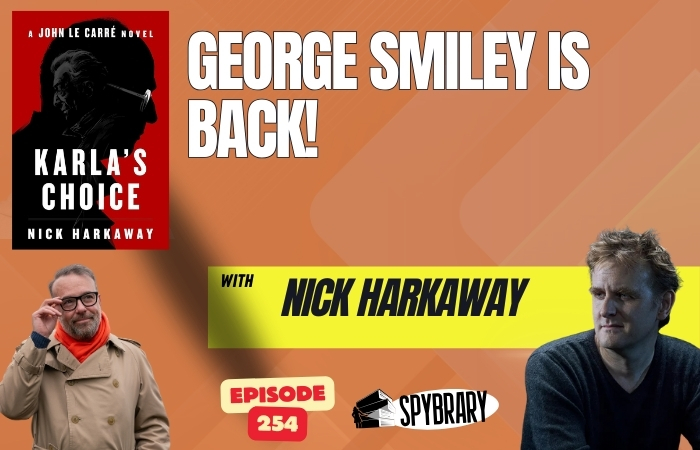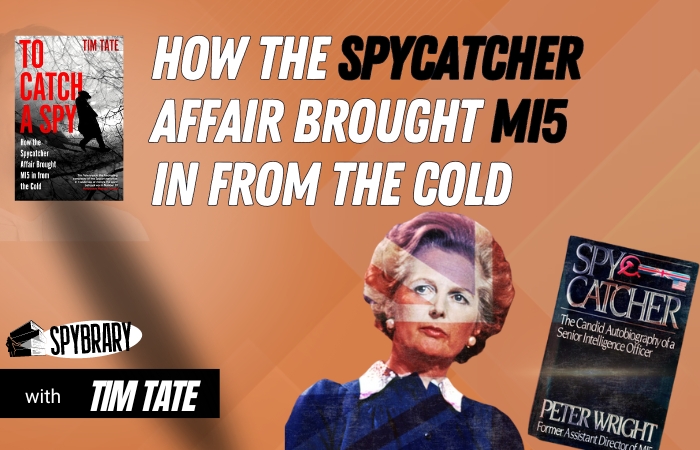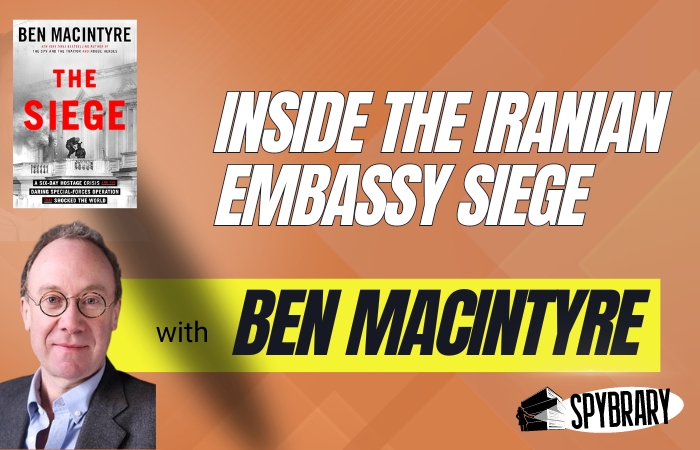

Active: 1987-2020
Key works: Siro, Agents of Innocence, A Firing Offence, Body of Lies, The Increment, Bank of Fear
Every day I post these names I wonder to myself whether it’s a day when I’m going to face a torrent for putting someone too high or too low. I think this is the last day when I’m concerned about people thinking I put someone too high. In truth, I’m not that worried because I have had David Ignatius as high as No 5 on this list at various points in the process. Indeed, had his last four books been as good as his first six, I would have had no hesitation in putting him that high.
So, caveat first, it matters which ones you read because there has been a noticeable drop off in quality, which began with Blood Money (2011). That and some of those which followed could have been written by any one of dozens of perfectly accomplished but undistinguished spy writers. The kind of people well worth a slot in the 100-200 range in our new expanded list of writers.
I also don’t think it is a coincidence that Ignatius, a former security editor with the Washington Post (now a columnist), who is very well plugged into the intelligence establishment in DC, has tried to move with the times, increasingly writing about the high-tech side of spying (The Director, The Quantum Spy), which has, in real life, totally overwhelmed human intelligence gathering, and plays a bigger role in spy fiction too. But there is something inherently less satisfying about this from a dramatic point of view. The best spy fiction is about people and David Ignatius writes brilliantly about people.
His first book, Agents of Innocence, is taught in some spy training facilities around the world as a template for brilliant tradecraft in recruiting and sustaining a relationship with a source. It is the story of how the CIA spied on the PLO in the 1970s through their relationship with a senior figure in Fatah and Black September. The word in Washington is that this is basically a true account of the recruitment of Ali Hassan Salameh, known as “The Red Prince”, the most notorious playboy terrorist in 1970s Beirut. Salameh’s handler was Robert Ames, subject of the brilliant biography The Good Spy. Here he is called Tom Rogers.
As in real life, there is delicious ambiguity about whether the CIA recruited Salameh or whether he was playing a double game. Certainly, there were benefits for both sides in the 3D chess of Middle East relations and certainly, the price America paid for his information was too high. At one point the book was described by the CIA on its website as “a novel but not fiction.” As an exposition of the moral ambiguity and shades of grey in espionage it is unsurpassed. Yet what sticks in the mind are also beautifully rendered scenes at an embassy dinner party, complete with Le Carre-esque understanding of the hierarchies and rivalries, professional and sexual inside a diplomatic/intelligence community.
Ignatius’s best known book is Body of Lies, which became the rather good 2007 Ridley Scott film starring Leonard o DiCaprio and Russell Crowe. The book is even better. Its premise is stolen wholesale from the Operation Mincemeat ruse in the Second World War of planting a corpse with false information, but the tradecraft involved is a delight and the whole thing is done with sophistication, tension and panache, complete with a good twist. It is one of the better spy thrillers of the last 20 years.
Perhaps edging even both of these is my favourite of his books, A Firing Offense, which begins with one of the grand social scenes at which he excels, a Washington funeral for a legendary journalist, who it transpires was up to his neck in espionage. One of his young colleagues begins to investigate and soon finds himself in over his head. It’s gripping and beautifully written.
One of Ignatius’s great triumphs was to go to places that are a little off the overly-beaten tracks of Cold war espionage writing. Agents of Innocence is set primarily in Lebanon, The Increment (2009), the last of his great novels, is the best thriller I’ve ever read about intelligence wars with Iran. Siro (1991), another I regard as in the very top echelon of spy books I have read, and maybe even the best “if you read only one” option, features a top secret plot to undermine the Soviet Union on its flanks, taking in Turkey and the Stans. It features in new girl Anna Barnes, the cold calculating mastermind Edward Stone, istanbul station chief Alan Taylor and – most of all – heavy drinking ex-CIA man Frank Hoffman – Ignatius’s best ensemble cast. Hoffman is reminiscent of Jason Matthews’ Marty Gable, but he was there first and leaves a more indelible impression.
The Bank of Fear (1995) is also a highly accomplished novel, which shares some subject matter with Single and Single, but is perhaps a notch behind the others.
Charles McCarry (No 11) and Robert Littell (No 14) are arguably more important in the history of the development of American spy fiction, but my strong view is that Ignatius’s best books are a notch ahead of anything they wrote. Tread with caution when approaching the recent stuff (and I haven’t read The Paladin, so I’d be interested if this is a return to form) but the early books are superb and bear comparison with the best five books of pretty well anyone I’ve read.
‘Reflecting on who and what I read and where I go back, I think I’m originally attracted by setting, by time and place and particularly by plot, but what keeps me coming back for more is character and that’s why Peter O’Donnell sneaks into the Top 10, somewhat to my surprise.
In a genre and a list where so much is either an attempt to copy Ian Fleming or to repudiate him, O’Donnell did something much more interesting: he devised a character that was in many ways similar and in the most obvious way different.
While the old line goes men wanted to be Bond and women wanted to be with Bond, Modesty Blaise is such a character that men would like to be as able as her and be with her. She is not only one of the greatest kick-ass action operatives and sexy as hell, her back story is so laden with pathos that it gives her a human and vulnerable air as well.
The other genius of the books is the relationship with Willie Garvin, who may be the greatest sidekick in spy fiction. Theirs is a relationship based on toughness and tenderness, a real partnership and friendship of mutual respect which never gets confused by becoming sexual. Modesty gets her considerable kicks elsewhere. Together these two are a well oiled machine and O’Donnell gives them truly ingenious techniques to escape their various binds and complete their missions. This may be imaginary tradecraft but it is a key element in making these books so enjoyable. And boy do they get in some binds, up against some of the most exotically psychotic villains ever put to the page.
It makes sense to start with the first one to get Modesty’s back story and to set up her relationship with Garvin and with Sir Gerald Tarrant, the spy chief who brings her out of retirement as a criminal mastermind to work for the secret service. I’ve only read the first four books but Sabre Tooth, the second, and A Taste for Death, the fourth, are generally considered the two strongest entries, though those who have read the lot also love The Silver Mistress and the two volumes of short stories: Pieces of Modesty and Cobra Trap. If some of the plots become repetitive that is not the point.
Spending time with Modesty and Willie is one of the greatest pleasures in spy fiction and it is enough to elevate them over a handful of perhaps greater spy writers. Which is not to say that O’Donnell can’t write, he can, indeed he manages the excitement with deft speed and pulse pumping tension. But what he has done is far greater than that, he has created characters who are at once both incredible and believable.
So why aren’t they better known now?
One of the greater tragedies in spy fiction history is that the Modesty Blaise film was not up to scratch. It genuinely could have been as great a franchise as Bond and, in the right hands now, it still could be. Indeed in the equality of the Modesty-Willie partnership, it is altogether more modern than Bond. It is also highly regrettable that these books are not currently available (in the UK at least) on Kindle, an omission I find baffling. Fortunately, the paperbacks can be had very cheaply online.
Modesty Blaise is both thrilling and comforting, like that old jumper you love to wear on a lazy Sunday afternoon, but when you do it still clings in all the right places – and that’s a Top 10 achievement.'
Tim Shipman
Further Reading
MODESTY BLAISE AND PETER O’DONNELL AND THE LAST GREAT ADVENTURE STRIP
Peter O'Donnell Obituary – The Guardian
Join the Spy Books Community Discussion
Spybrary is more than just a spy podcast; it's a place to chat with fellow spy book and spy film fans from around the world. We encourage you to share your views on each spy book/movie, engage in discussion with fellow fans, and immerse yourself in the captivating world of spy fiction, spy fact and spy films.









